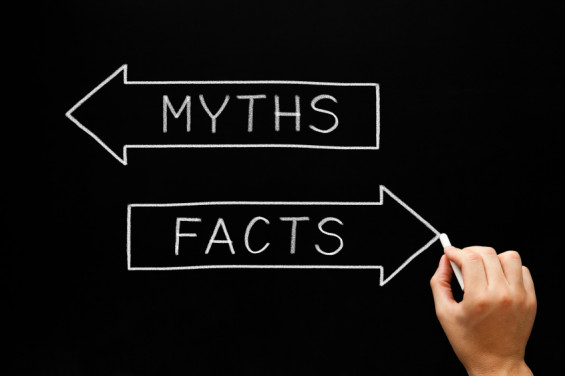
The question I posed as the title of this blog is a good one that needs revisiting often. Why? Because it puzzles me that some people still are not aware that monosodium glutamate (MSG) is a perfectly safe food ingredient.
So I’m going to have another go at it. In an effort to not reinvent the wheel entirely, I’d like to reexamine some thoughts on the topic of MSG safety, including some that I wrote in previous blogs about how there is so much misinformation out there.
While the internet can be a blessing (and yes, it is here to stay), it also can be a curse. A curse? Here’s the thinking about that. Years of inaccurate information and anecdotal tales of woe have been posted and reposted and reposted again about MSG safety. Individuals who don’t believe it is safe or do not understand that the science supports MSG’s safety often sensationalize it. In this day and age where ‘sexy’ sells, outrageous information is what too often grabs attention. Tried and true science can be a bit boring, hence the perpetual posting of untruths about MSG.
The bottom line from me is this. I am not asking you to take my word for it. Rather, take a look at what worldwide health-focused regulatory and scientific agencies say. These organizations have concluded that monosodium glutamate, MSG, is perfectly safe, having based their conclusions on hundreds of studies, none of which have conclusively linked MSG to any specific health issues:
United States Code of Federal Regulations for Substances that are Generally Recognized As Safe (GRAS) (21 CFR § 182.1): “(a) It is impracticable to list all substances that are generally recognized as safe for their intended use. However, by way of illustration, the Commissioner regards such common food ingredients as salt, pepper, vinegar, baking powder, and monosodium glutamate as safe for their intended use.”
U.S. Food and Drug Administration: “Over the years, FDA has received reports of symptoms such as headache and nausea after eating foods containing MSG. However, we were never able to confirm that the MSG caused the reported effects.”
“The glutamate in MSG is chemically indistinguishable from glutamate present in food proteins. Our bodies ultimately metabolize both sources of glutamate in the same way. An average adult consumes approximately 13 grams of glutamate each day from the protein in food, while intake of added MSG is estimated at around 0.55 grams per day.”
JECFA (Joint Expert Committee on Food Additives) of the WHO/FAO: “The total dietary intake of glutamates arising from their use at levels necessary to achieve the desired technological effect and from their acceptable background in food do not represent a hazard to health.”
International Headache Society: In January 2018, the International Headache Society removed MSG from its list of causative factors for headaches. Previously, MSG had been listed in the Society’s International Classification of Headache Disorders (ICHD) as a substance possibly attributed to headaches. Now, in the ICHD 3rd edition, based on the latest scientific evidence MSG has been removed from this list.
Food Standards Australia New Zealand (FSANZ): Regarding the safety of MSG, they concluded: “there is no convincing evidence that MSG is a significant factor in causing systemic reactions resulting in severe illness or mortality.”
For direct links to these and other expert sources commenting on MSG safety, please visit the MSGdish Resources page.


Mr. Berg: Thank you for your interest in the information provided on the MSGdish blog. As the author of this blog stated, years of inaccurate information about MSG can be hard to erase!
We would like to respond by quoting from the U.S. Food & Drug Administration (FDA), and we encourage you to read through additional blogs on MSGdish to become further educated about the science related to MSG.
From the FDA (https://www.fda.gov/Food/IngredientsPackagingLabeling/FoodAdditivesIngredients/ucm328728.htm):
“FDA considers the addition of MSG to foods to be “generally recognized as safe” (GRAS). Although many people identify themselves as sensitive to MSG, in studies with such individuals given MSG or a placebo, scientists have not been able to consistently trigger reactions.”
“Today, instead of extracting and crystallizing MSG from seaweed broth, MSG is produced by the fermentation of starch, sugar beets, sugar cane or molasses. This fermentation process is similar to that used to make yogurt, vinegar and wine.”
“The glutamate in MSG is chemically indistinguishable from glutamate present in food proteins. Our bodies ultimately metabolize both sources of glutamate in the same way. An average adult consumes approximately 13 grams of glutamate each day from the protein in food, while intake of added MSG is estimated at around 0.55 grams per day.”
Note: we have not posted the full second paragraph of your comment since it violates our Commenting Policy in that it is promoting your commercial website. We would like to point out however that the study you cite about insulin increases is nearly two decades old, studied only 9 people who drank a highly concentrated MSG solution (the MSG was not consumed in foods), and has been repudiated by more recent research.
MSG is one of the most common flavor enhancers that you have in the market. It intensifies the taste buds of your mouth and makes the food taste better than it really is so they can trick your taste buds into eating lower quality food so the food manufacturing companies can make more profits and it has some major side effects.
One of them is, and perhaps the most obvious one is that is pretty addictive. You eat more food, increases serotonin, and it also increases insulin by 300%.